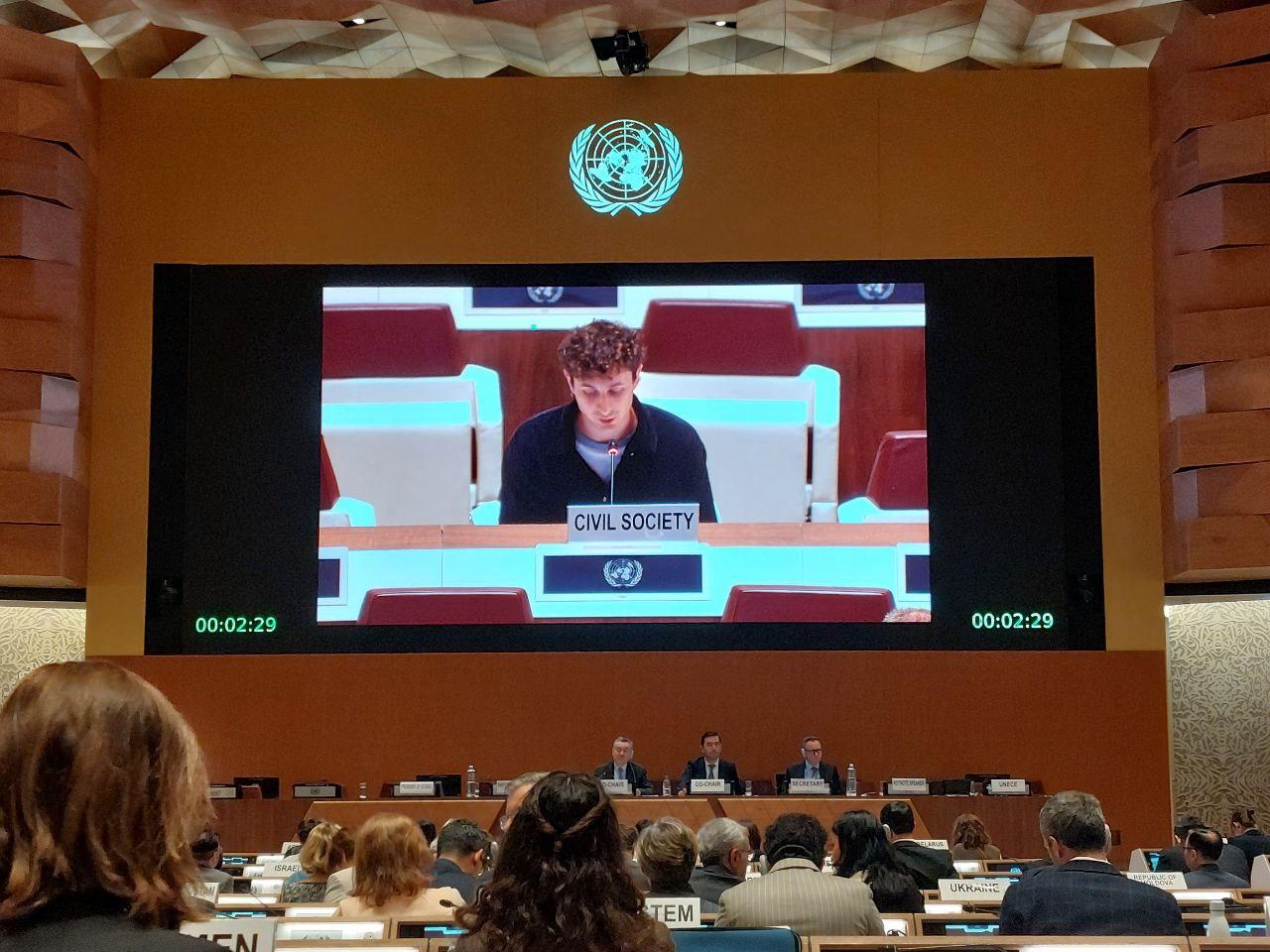Distinguished delegates,
My name is Marsel Ganeyev, I am a Kazakh LGBTI activist speaking on behalf of the Regional Civil Society Mechanism CSO forum yesterday. Civil society organisations from across our region speak today with deep concern and renewed urgency.
We face overlapping political, ecological, and economic crises, while global commitments to address them are weakening. Civil society spaces are continuously shrinking,while in 2024, military spending reached 2.46 trillion US dollars globally. Many governments reduce civil society to service providers, while restricting our advocacy. Some governments have rejected the 2030 Agenda entirely—undermining multilateralism and the goals of this Forum.
Combined with the spread of political repression and foreign agent laws that criminalise civil society, this threatens our collective future. It is unacceptable.
The 2030 Agenda must not be a government-to-government exercise—it must serve people, nature, and future generations.
On SDG 3
On SDG3. Healthcare in our region remains unequal, understaffed, and discriminatory. Access to sexual and reproductive health and rights, including comprehensive sexuality education, is still denied to many—especially LGBTI people. Over 50% of trans people face discrimination in healthcare settings.
This is more than a health crisis — it’s a denial of existence.
We call on governments to build resilient, inclusive health systems throughout the life course by investing in a sustainable, fairly paid, and well-trained workforce and to ensure access to high quality affordable universal health coverage.
Community-based, preventive care models, especially for ageing populations, must be supported. Mental health must also be prioritised — because there is no health without mental health.
On SDG 5
On SDG5. Disinformation, far-right radicalisation, climate denialism, and militarisation are on the rise. Gender-based violence remains widespread, while women perform three times more unpaid care work than men.
This backlash is structural. Girls and gender-diverse youth are being pushed out of schools, women in all their diversity are excluded from leadership, and intersectionality remains under-implemented.
We urge governments to defend the progress we have had on gender equality, close the gap between policy and lived reality, and uphold commitments to racial justice and disability inclusion. Also, reinstate the funding for sign language interpretation at this very forum.
The backlash is coordinated. Our resistance must be, too.
On SDG 8
On SDG 8. Precarity is deepening. In some UNECE countries, youth unemployment is spiralling, while older women sustain households without their labour being recognized. Informal and digital work is on the rise, but social and labour protections are shrinking. Fundamental workers rights, including freedom of association, are being increasingly denied across the region.
We call for the enforcement of labour rights and accountability, including for the private sector. Uphold freedom of association as a fundamental right. The digital economy must be regulated, and care work must be recognised and valued. We demand universal social protection, inclusive of youth, older persons, migrants, persons with disability, unemployed and informal workers and beyond.
On SDG 14
On SDG 14. Ongoing conflicts and military activities are polluting ecosystems. Combined with plastic and land-based waste, over 11 million metric tons of plastic enter oceans each year.
Plastic is a fossil fuel in disguise. Regulate it as one.
We urge governments to support the UN treaty on plastic pollution, invest in citizen science, and strengthen marine monitoring and global cooperation. Military pollution must be named — and regulated.
On SDG 17 – Partnerships for the Goals:
On SDG 17. Let us be clear: no SDG can be achieved without financing and civil society. Aid cuts from the biggest donors such as the US, Netherlands, Sweden, UK, and others threaten the survival of organisations working on human rights, basic freedoms, gender justice and LGBTI rights. Development is being dismantled by militarised spending — this is not collateral damage; it is structural violence.
Limited funding is weakening the essence of SDG 17. We call for a billionaires tax—as the richest 1% captured nearly two-thirds of post-pandemic global wealth. We support action at FFD4 for global tax reform and financial regulation.
End harmful subsidies. Guarantee long-term, accessible funding for feminist, youth-led, LGBTI, disability, human rights, and grassroots groups. Finally, ensure the Green Transition is not Just another form of extractivism and neocolonialism.
In closing,
We are not just participants — we are the drivers of the Agenda. We stand with Member States who are holding the line, and urge others to join them.
Thank you.
